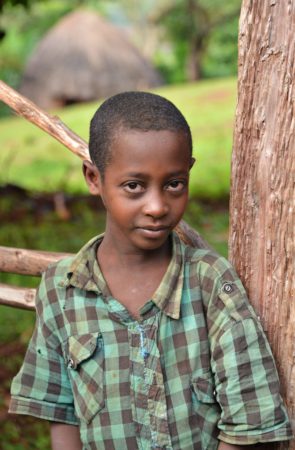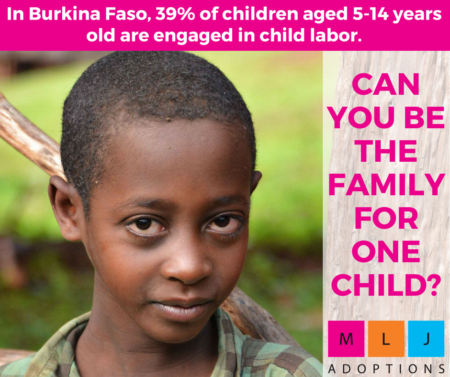 MLJ Adoptions is excited about our adoption program in Burkina Faso and the continued efforts of Burkina Faso’s central authority to place their most vulnerable children! Last week, MLJ received a third special needs list from the office of La Direction des Placements et des Adoptions, Burkina Faso’s central authority. Central authorities or adoption authorities exist in Hague Convention countries like Burkina Faso, and are responsible for matching children with families. Special needs lists are routinely issued in many countries, in an effort for the adoption authority to advocate for hard to place children. Unfortunately, children with special needs are often considered hard to place and are overlooked by prospective adoptive parents, but are in desperate need of homes and loving families.
MLJ Adoptions is excited about our adoption program in Burkina Faso and the continued efforts of Burkina Faso’s central authority to place their most vulnerable children! Last week, MLJ received a third special needs list from the office of La Direction des Placements et des Adoptions, Burkina Faso’s central authority. Central authorities or adoption authorities exist in Hague Convention countries like Burkina Faso, and are responsible for matching children with families. Special needs lists are routinely issued in many countries, in an effort for the adoption authority to advocate for hard to place children. Unfortunately, children with special needs are often considered hard to place and are overlooked by prospective adoptive parents, but are in desperate need of homes and loving families.
Special needs lists issued by Burkina Faso’s central authority include children with medical special needs of all ages, as well as older children with no medical needs indicated, who are placed on the list due to their ages. Older children appearing on these lists with no medical special needs range in ages 6 years old and above. On the most recent special needs list that we received, the children ranged in age of 10 months old to 15 years old. The children on the list also ranged in medical conditions. The special needs lists indicates that Burkina Faso’s central authority is focused on a child’s best interests, and committed to placing vulnerable children in families.
What types of medical conditions do we normally see on the special needs list issued in Burkina Faso?
Children ages 6 and older, with no medical needs, placed on the list simply due to their ages.
Children of all ages with the following conditions:
- Hepatitis B
- Sickle Cell trait or disease
- Children born of incestuous relationships
- Children born to “mentally ill” birth mothers
- Children with mental handicaps
- Children with deformed limbs, hands or feet
- Children who are deaf-mute
- Children with developmental delays
- Children suffering from the effects of malnutrition
As you can see, some conditions are treatable or reversible, while others require a lifelong commitment to treatment. We always recommend that families, even in the initial stages, reach out to an international adoption doctor to obtain a professional’s opinion.
The latest special needs list also indicated that many of the children were currently undergoing physical therapy, and that substantial improvements were being seen. Providing children with needed medical care and therapy is another great indicator that the country and its adoption authority is motivated by the best interests of their children in need.
If you are considering an international adoption, our Burkina Faso program may be a great fit for your family! Do your research on the various medical conditions prevalent in that country, and talk to medical professionals so that you are well educated on what medical care looks like once you bring the child home. You may be surprised; medical care for some conditions may not be as scary as you think!
As your family considers international adoption, think about what the world looks like from a vulnerable child’s point of view, without a family, without a home, facing the medical condition alone. Moving forward with an older child adoption or a special needs adoption will not only change the life of that child; it will also change your life for the better as well.
Photo Credit: Rod Waddington

